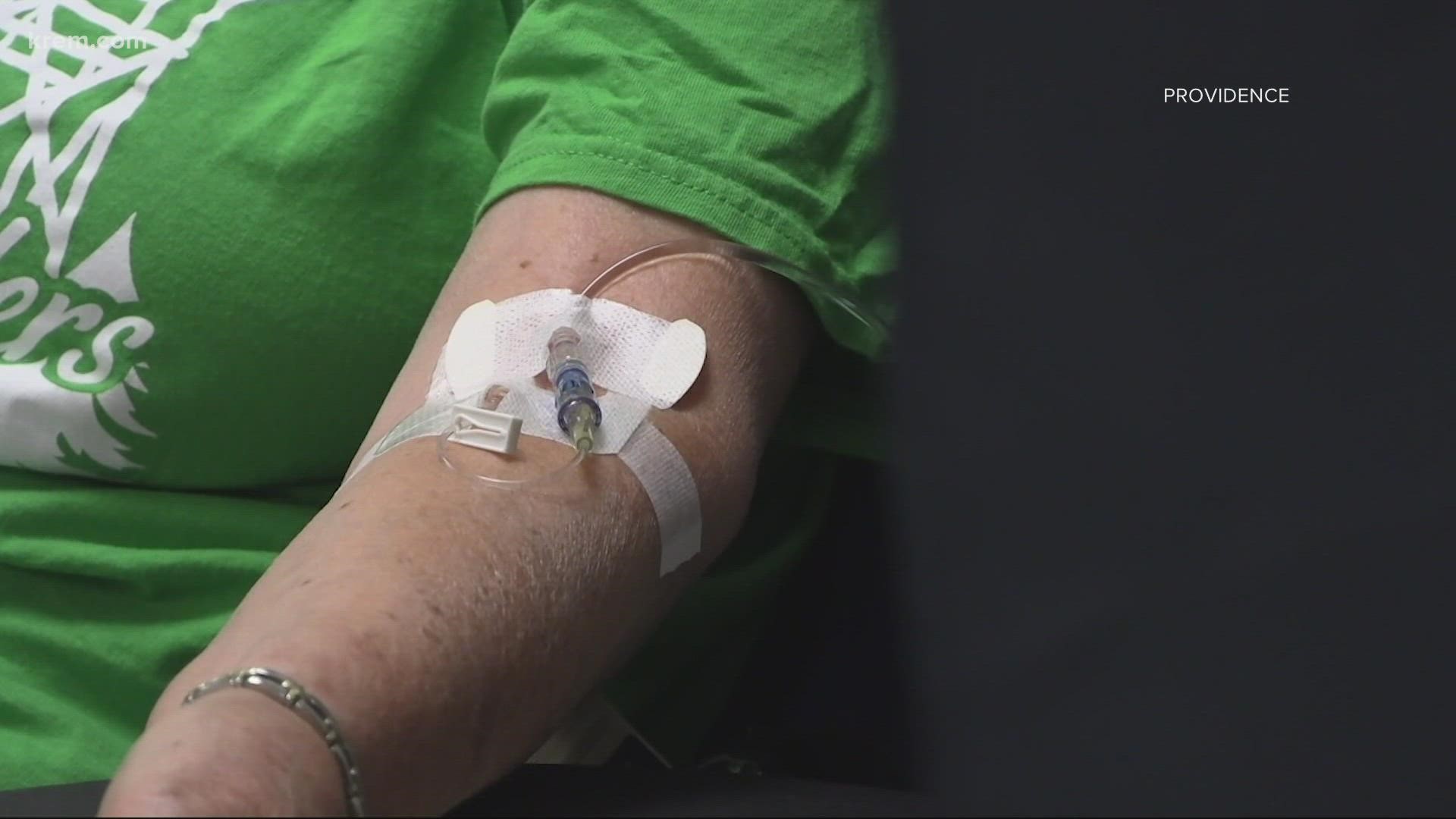SPOKANE, Wash. — Monoclonal antibody infusion is a popular and effective therapy for people at high risk of developing severe illness from COVID-19 and have tested positive for the virus.
The monoclonal antibody treatment is authorized by the US Food and Drug Administration (FDA) and available in Washington state with a provider’s recommendation for certain high-risk individuals.
While this is a beneficial option for some, it is not a replacement for the COVID-19 vaccine.
MultiCare was the first clinic in Spokane to offer the monoclonal antibody treatment, and now Providence Health Care also started offering the infusion.
If you don’t know whether you qualify for the monoclonal antibody treatment, here is what you need to know:
How does the monoclonal antibody treatment work?
Monoclonal antibodies are laboratory-made proteins that mimic the immune system's ability to fight off harmful antigens, such as the COVID-19 virus. The treatment works by targeting the COVID-19 spike protein, blocking the virus from entering your body's cells and stopping the infection from spreading.
Providence Health Care Chief Medical Officer Dr. Cara Beatty said the monoclonal treatment has been shown to avoid 70% of hospitalizations.
Who is eligible for the treatment?
The therapy is best for people who are at high risk for developing severe illness from COVID-19 and have tested positive for the virus. You need to get a referral from your doctor to get the treatment.
High-risk factors include diabetes, heart disease, cancer, chronic lung disease or require a doctor's order. Those 65 or older are also eligible, but they must have a positive COVID-19 test within the 10-day symptom window and have a doctor's order.
For this therapy to be most effective, it must be taken as early in the disease course as possible. In high-risk patients, receiving the treatment earlier when symptoms are less severe can help prevent the disease from progressing to the point that the person would require hospitalization.
You must be COVID positive with mild to moderate symptoms. These look like flu symptoms: low-grade temperature, sore throat, cough. More moderate cases are people who have some chest pain. If you need oxygen, this treatment is not for you.
Providence patients should speak directly with their health provider or receive a referral through a Providence Urgent Care, Express Care or Express Care virtual visit.
You should have a condition that would make you have a high risk of developing a severe case or hospitalization, such as heart disease.
You must be 12 years or older.
How does the infusion is applied and what are the side effects?
The treatment requires one dose and is given through an IV infusion. The infusion takes 20 minutes, and one additional hour on-site to make sure there are no adverse reactions.
Beatty says side effects in patients are rare, and no patients have shown serious reactions to the treatment, but most of the reported symptoms after getting the treatment include mild and include dizziness, fiber, chills, itching or skin rashes.
What clinics are offering the treatments in the Spokane area?
MultiCare Rockwood Clinic is also offering the treatment at its MultiCare Rockwood main clinic location. MultiCare was the first clinic in Spokane to offer the monoclonal antibody treatment.
Providence Sacred Heart Medical Center is offering this treatment at both the Sacred Heart and Holy Family Hospital emergency departments, as well as one outpatient clinic. This treatment is available with a physician referral only. Urgent Care clinics are not offering this treatment at this time.
To find a treatment location in Washington, visit the U.S. Department of Health and Human Service’s location map.
How much does the treatment cost?
There is no cost to the patient for the antibody product itself, but it is possible the patient gets an administration fee for the infusion, which in most cases is covered by the patient’s Medicare.

